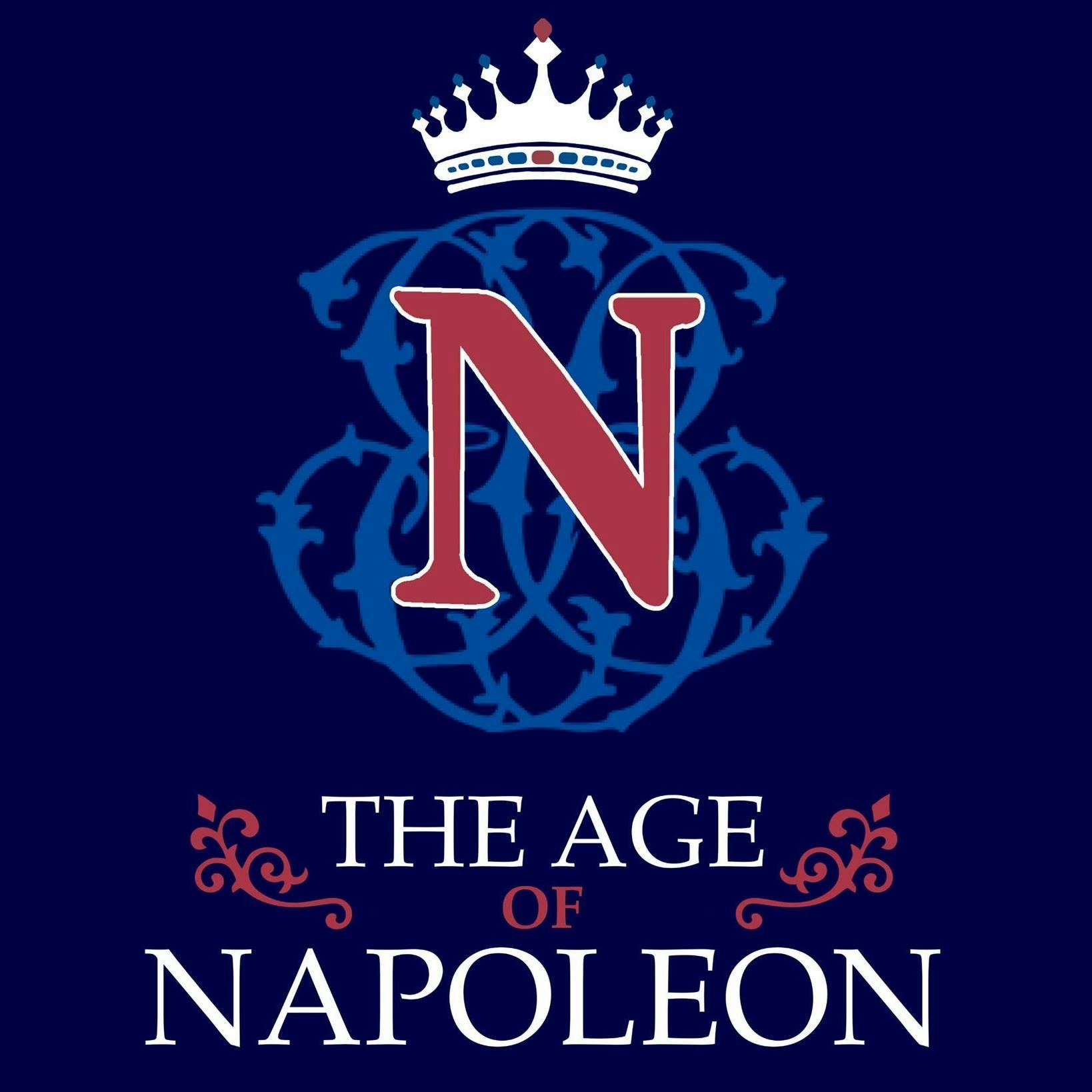
La Fayette, We Are Here!
La Fayette, We Are Here!
Antoine Lavoisier - A Savant at the Scaffold
Use Left/Right to seek, Home/End to jump to start or end. Hold shift to jump forward or backward.
If you weren't sleeping through your chemistry classes in high school, you probably heard the phrase "Nothing is lost, nothing is created, everything is transformed." This is basically what we know as the law of conservation of mass. It was coined by Antoine Lavoisier, the man considered the father of modern chemistry and one of history's most influential scientists.
However, he will end his days under the blade of the guillotine in 1794. How can this be? Join us as we delve into the remarkable but tragic life of Lavoisier, a savant at the scaffold!
Timecodes
Introduction
06:36 - Young, Rich and Brillant
13:25 - Understanding Nature
20:39 - The French Revolution
25:37 - The Blade Falls
31:17 - Conclusion
Relevant Episode:
The French Revolution, a Worldwide Tremor
Music: Marche pour la cérémonie des Turcs, composed by Jean-Baptiste Lully, arranged and performed by Jérôme Arfouche.
Artwork: Portrait d'Antoine Lavoisier et de sa femme, Jacques-Louis David, 1788. Metropolitan Museum of Art, New York
Reach out, support the show and give me feedback!
You can hear the crowd waiting for you. Bloodthirsty, filthy, waiting to enjoy the grim show that is about to take place. You know exactly what awaits you, you’ve seen it in action, with its utmost efficiency: the guillotine. What baffles you is that you, a savant, a man of knowledge and a good man, should be sent to this black widow as it is often called. You only hoped to help mankind, that had always been your only struggle. And yet, here you are, being taken to this merciless blade.
You walk to the scaffold, alongside others convicted during farcical trials. The men who condemned you are obsessed with their revolution, they ignore everything else. If they see anything in you that they dislike, if they believe for a second that you didn’t do you utmost to help out their cause, then you are as good as dead. You know this, and that a ghastly breeze is about this kiss your neck, followed by cold steel, in the same fraction of a second.
You are put under the blade, while the people amassed around you cry insults and names at you. They ignore who you are in the eyes of science, they ignore how deeply important your work has been, they ignore how highly regarded you are by any man or woman with some education. They only see a broken man who is about to have his head cut off. And that thrills them.
Then, the rumbling of the drums stops, the crowd quietens. The sharp sound of steel falling down appears, followed by a short thud. Antoine Lavoisier, one of history’s greatest chemists and biologists had just been executed by his fellow Frenchmen.
Welcome, to La Fayette we are here! The French history podcast, by a Frenchman! Today, we are talking about Antoine Lavoisier, the famous French chemist who ended up being executed during the French Revolution.
First, I have a announcement to make. After a period of reflection, I’ve decided to change the frequency of the podcast. Instead of releasing an episode every month, I will now release one every two months.
The reasons are simple. Although I love researching, writing, and recording the episodes, it is very time-consuming, and as a one-man army, it requires many hours per episode. With a full-time job and a young family, it’s simply become too demanding. I’d rather release fewer episodes but continue podcasting, rather than becoming frustrated or burnt out and stopping altogether. I hope you understand and will continue to listen and support the show.
In other news, although I stopped using it last year, I have now deleted the podcast's X (formerly Twitter) account. I simply couldn’t bear to keep my podcast on a platform that has transformed into an extreme right-wing political propaganda machine. I’m not judging anyone who still uses it—I understand that walking away from a community you’ve built over the years is no easy decision. It certainly wasn’t for me, as I had cultivated a following of over three thousand people. But it became impossible to stay, especially when there are other platforms readily available.
You can now find the podcast’s social media presence on Bluesky and Mastodon, as well as on Meta’s platforms. I’m keeping an eye on these spaces, and so far, the community there has been wonderful. The links are in the show notes, or you can simply search for "La Fayette podcast" in their search engines.
Now, back to our subject, Lavoisier. If you weren't sleeping through your chemistry classes in high school, you probably heard the phrase "Nothing is lost, nothing is created, everything is transformed." This is basically what we know as the law of conservation of mass, which was confirmed by Lavoisier in his Traité Élémentaire de Chimie in 1789. It's also a prime example of the type of work that Lavoisier produced. He didn't discover create revolutionary machines or equipment. What he did, was establishing a clear analytical method and applying it to his field of study at any given moment. Be it chemistry, biology or, as we shall see, finances and duties. Lavoisier can be seen as the great organizer, an analytical and methodological mind like no other. Not a crazy and genial scientist conducting dangerous experiments in his basement, although he did conduct his fair share of experiments, but an administrator of science, one of remarkable efficiency.
And this man, as I have said, will end his days under the blade of the guillotine in 1794. How can this be? Well, it's the results of events that took part two decades before he was judged and executed. To understand how Lavoisier went from a leading scientific mind to a man condemned to death, let's start at the very beginning, his origins.
Young, Rich and Brillant
Antoine Laurent Lavoisier was born on August 26, 1743, in Villers-Cotterêt, a small town northeast of Paris, into a well-to-do family. His father, Jean-Antoine Lavoisier, was a lawyer and a procurator at the Parlement of Paris, while his mother, Emilie Punctis, came from a wealthy family. Tragically, Lavoisier’s mother died when he was just five years old, leaving him and his younger sister in the care of their father and aunt.
From an early age, Lavoisier showed a keen interest in learning. He attended the Collège des Quatre-Nations, also known as the Collège Mazarin, one of the most prestigious schools in Paris. There, he excelled in the sciences, particularly in mathematics and physics. His education was rigorous, and he developed a habit of meticulous observation and precise reasoning, traits that would later define his scientific career.
In 1760, Lavoisier entered the Faculty of Law at the University of Paris, following in his father’s footsteps. He earned his law degree in 1764 but never practiced law. Instead, his passion for science led him to pursue a career in chemistry and natural philosophy. During his studies, he attended lectures by some of the leading scientists of the time, including the geologist Jean-Étienne Guettard, who would become a mentor and collaborator. He also learns botany with Bernard de Jussieu, physics with the abbé Nollet and chemistry with Guillaume-François Rouelle. Rouelle introduced Lavoisier to laboratory experiments, manipulating what he called "airs" in tubes of various shape and sizes. He was, of course, experimenting with gazes, but the word gaz hadn't made it into the French language yet.
Lavoisier is a keen observer and has a very analytical mind. He's not even twenty when he figures that there is something wrong with the whole approach to chemistry. He notes than in mathematics, one has to be be perfectly logical and coherent, that you cannot proceed without proving a proposition before moving on to the next one. In chemistry, there was a lot of supposition, of guessing. Lavoisier wanted to use the structure he was learning in other fields and to apply it to chemistry, a field that was still largely mysterious in the 1760's. But he still had a long way to go.
Lavoisier’s first foray into scientific research began in the early 1760s. Under the guidance of Guettard, he embarked on geological surveys of France, contributing to the creation of a mineralogical map. This work not only honed his observational skills but also introduced him to the practical applications of science. Lavoisier’s involvement in these surveys marked the beginning of his lifelong commitment to documenting and analyzing natural phenomena.
In 1763, Lavoisier published his first scientific paper, a detailed description of an aurora borealis he had observed. This paper demonstrated his ability to combine careful observation with theoretical analysis, a hallmark of his later work. Around the same time, he began conducting experiments on gypsum, a mineral used in plaster, and studied its properties, including its solubility in water and its behaviour under heat. His findings on the dehydration of gypsum were among his earliest contributions to chemistry.
Lavoisier’s early work demonstrated his ability to combine theoretical knowledge with practical experimentation. He was not content with mere observation; he sought to understand the underlying principles governing natural processes. This approach would later become the foundation of his revolutionary contributions to chemistry. In 1768, Lavoisier is admitted into the Académie royale des sciences as assistant to chemistry. A remaniable achievement for a twenty-five year-old. He would quickly make a name for himself in this great institution.
But Lavoisier was not interested only in nature and science, he also cared about social and financial structures. In 1768, he made a decision that would shape both his personal and professional life: he joined the Ferme Générale, a private company responsible for collecting taxes on behalf of the French monarchy. The system was essentially a form of tax farming, where the French government outsourced tax collection to private individuals or groups, known as fermiers généraux, who paid the crown a fixed sum in advance and then collected taxes from the populace to recoup their investment and make a profit. This arrangement allowed the monarchy to secure immediate revenue without the administrative burden of managing tax collection directly.
However, the Ferme Générale was deeply unpopular among the French people. The fermiers généraux were often seen as corrupt and exploitative, as they had a vested interest in maximizing their profits, sometimes through harsh or unfair methods. The system was also inefficient and riddled with inequalities, as the tax burden fell disproportionately on the lower classes while the nobility and clergy enjoyed exemptions. This widespread resentment contributed to the growing discontent that fuelled the French Revolution. But we shall circle back to that later.
Understanding Nature
In 1771, Lavoisier married Marie-Anne Pierrette Paulze, the 13-year-old daughter of a senior member of the Ferme Générale. Despite the age difference, their marriage was a partnership in every sense, after a few years. Marie-Anne became Lavoisier’s closest collaborator, assisting him in his experiments, translating scientific texts, and even illustrating his publications. Her contributions were invaluable, and she played a crucial role in the dissemination of Lavoisier’s work in later years.
Together, the couple transformed their home into a hub of scientific activity. Lavoisier’s laboratory at the Arsenal in Paris became a meeting place for leading scientists of the time, including Joseph Priestley, Benjamin Franklin, and Pierre-Simon Laplace. Marie-Anne’s involvement in Lavoisier’s work was unprecedented for a woman of her time, and her contributions helped to ensure the success of his experiments and publications.
Ironically, it is thanks to his position as fermier général that Lavoisier will be able to advance his scientific researches. Assigned to the secretariat in charge of the collection of taxes at the Paris grant, he has a scale that is used to detect fraud, the most accurate in Europe, and it is this scale that he uses to carry out molecular weighing of various gases with an unprecedented margin of error until then. Taxes financing scientific research, remarkably modern, isn't it?!
Since antiquity, every man of science recognized the four elements of the world: earth, water, air and fire. But these were impenetrable, they couldn't be analyzed properly. Although they understood that there was a preservation of mass during their interactions, it was never proven by experimentation. Thanks to his extremely accurate scale, Lavoisier stated conducting experiments.
He boiled water over very long periods of time, often for several weeks. He burned various elements, added acid to others. He noted precisely the weights of all the elements involved. Although they could change forms many times, their weights remained the same. He also observe the various states of burning matter, including the formation of what he first called "elastic emanations". He was making great strides into understanding the ways elements affect each other under different stresses. These may seem simple lab experiments, akin to what you could do in high school today. But in the 1770's this was groundbreaking. Lavoisier was also very keen on reproducing experiments first conducted by others, but he always added his precision measurements and observations, hence improving upon the original experiment.
He was also fascinated by combustion and wanted to understand its mechanism. Thanks to the works of others, such as Joseph Priestley and Joseph Black, he understood the necessity of the presence of what he called "dephlogistic air". In 1779, he baptized this type of air "oxygen". He will then proceed in understanding oxydation. Later on, he will isolate the present of oxygen in water and will name a new gaz: hydrogen. He also pointed that the air we breath was composed of a mix of gazes, namely oxygen and nitrogen. By the way, Lavoisier first identified these gazes as the vital gaz and the anti-vital gaz. The first one as we saw will be renamed "oxygen" because of its acidification qualities. The latter is named, in French, azote, meaning "deprived of life". To Lavoisier, it was always important to show the balance that structured the natural world, and that went all the way to naming conventions.
Thanks to these experiments in the 1760s and 70s, Lavoisier debunked the traditional phlogiston theory that there was a special element called phlogiston enabling combustion and that matter affected by combustion or rusting would change in mass. Lavoisier established that matter changes in many ways, but that indeed, "Nothing is lost, nothing is created, everything is transformed."
Lavoisier was also working on improving France's military capabilities. In 1775, he took charge of the Powder and Saltpetre Management, to conduct research on gunpowder. The goad was to make France self-sufficient in its production and to produce a higher quality powder for its military.
It is important to underline the massive paradigm shift that this represented at the time. Thanks to Lavoisier and his contemporaries, humanity was finally starting to understand the natural world in ways that defied mere superficial observation. Lavoisier's contribution wasn't due to him being a genius or being lucky, he established a method of work and analysis that allowed him to figure out how molecules interacted. He kept working on dissecting and cataloguing experiments and elements and in 1789 he published his Traité élémentaire de chimie or "Elementary treatise on chemistry", considered to be the first manual of modern chemistry. In it, he describes with precision the various experiments and results I've talked about and he establishes a nomenclature of chemical elements. It will evolve over the next century, until Dmitri Ivanovitch Mendeleïev published his famous periodic table in 1869.
If Lavoisier was doing his utmost to understand chemistry and nature in general, something else was about to undergo a massive transformation: France. Just like the water in Lavoisier's lab, the country was boiling and if nobody took control of the fire, it could very well, explode!
The French Revolution
To get a better understanding of the French Revolution, please listen to my January 2023 episode dedicated to it. For now, we will focus on its impact on our friend, Lavoisier.
In 1788, king Louis XVI called the Estates General for next year, allowing the different parties to prepare their cahiers de doléances or grievances books. Lavoisier, at 45 years old, was recognized as one of Europe's most prominent scientists, as well as a fair man. He was put in charge of presenting the cahier for the nobles of Blois, where he lived. A man of the French Enlightenment, Lavoisier wrote, quote: "The purpose of any social institution is to make as happy as possible those who live under its laws. Happiness should not be reserved for a small number of people; it belongs to everyone. It is not an exclusive privilege to be contested; it is a common right to be preserved, to be shared, and public happiness is a source from which everyone has the right to draw their own."
Because of his position of fermier général, Lavoisier was in a very good position to understand the capacity and the limits of France as a country, economically speaking. Lavoisier is very much aligned with the Révolution. He changed his name from "de Lavoisier" to "Lavoisier", dropping the noble "particule", he advocated in favour of a constitutional monarchy and a thorough reform of the French regime. Inspired by the princess of Law and the example set by the United States, he favoured the establishment of a new currency to better control France's finances.
In March 1791, he delivered a very detailed report on France's territorial wealth to the Constituante, the assembly in charge of the country at the time. In his report, he detailed how much money could be taxed without putting an exaggerated load on the taxpayers. He was basically giving them blueprints to reform the archaic French tax system. He used many parameters such as demographics, agricultural statistics and more to deliver very precise tables on the reality of the French economy. But despite all this, some men in the revolutionary government had Lavoisier in their sights. No because of what he was saying, but because of who he was and what he represented.
Lavoisier was born a nobleman. He was rich and used his considerable wealth to become even richer. The facts that he conducted himself in a fair manner towards the people working under him, that he was not corrupt like many other fermiers or that he used his ressources to finance his most important researches was besides the point. He was targeted because he was part of the ruling class. He was both a nobleman and a fermier général. The fermiers were perceived as enemies of the Revolution and, after 1792, as enemies of the Republic. While it is true that many fermiers were indeed opposed to the Republic, Lavoisier was actually trying to help it. He was working on the establishment of a national education system, aiming to make France the most educated and literate country in the world. Not what I would call an enemy of the people, wouldn't you agree?
Sadly for Lavoisier, the Reign of Terror, that terrible period of French history would start in 1793, under the rule of Maximilien Robespierre and the Committee of Public Safety. I explore it in much more detail in my dedicated episode, but basically the Committee was targeting thousands upon thousands of French citizens. They established Revolutionary tribunals that could order the arrest, judge and execute people in a matter of days, sometimes hours. By mid-1794, around 40,000 people will be guillotined by this terrible regime. Lavoisier, as we shall see, will be one of them.
The Blade Falls
Revolutions are bloody and messy. That is a truism if I ever said one. But the French Revolution reached unprecedented heights in the matter. The humanist ideas of 1789 quickly gave way to an unforgiving thirst for blood amongst a fringe of the revolutionaries. They declared "ennemies of the Republic" whoever they saw fit. It could be because they had one day indeed opposed the Republic, or because they felt that they hadn't supported it enough. In other occasions, it was simply because of who people were, their actual actions or declarations not being actually taken into account. Lavoisier fell under that latter category.
The Ferme général was disbanded in 1791. In 1793, the various royal academies were also disbanded, including the Academy of Sciences. Lavoisier was therefore, out of two jobs if you will. In 1793, Lavoisier was helping the French government modernizing its tax collection system, as I have alluded previously. On November 24 1793, following a bogus investigation, the deputy of the l'Oise département, François-Louis Bourdon, orders the arrest of twenty-seven former fermiers. They had one month to present their defence, otherwise they would be "delivered to the sword of law" in Bourdon's words. Lavoisier is arrested on November 28th, alongside his father-in-law, Jacques Paulze.
He's accused of having trafficked tobacco in France, of having taking advantage of his position to enrich himself, of failing to send the collected funds properly to the French crown, and of many other acts of corruption and abuse. The man in charge of the accusation is André Dupin de Beaumont, the deputy of the Aisne department. He produces a deeply flawed dossier on the fermiers, taking liberties with the accounts and producing dubious witnesses to strengthen his accusation. There is no proper procedure during the following trial. The French government had two clear aims here: to take over the lands and riches of the arrested men and to silence them. There was never any intention of giving them a proper trial or to listen to their various cases, they were seen as one big entity. Lavoisier was but one cog in a monstrous machine.
The trial that starts on May 8th, 1794. One after the other, the men are questioned quickly by Antoine Fouquier-Tinville. Thanks to the help of agile jurists, he manages to transform what could be described as minor offenses as major crimes. He also alleged that the accused worked against the Republic, years before it even existed! It is completely wrong and the accused know perfectly well what awaits them. In typical revolutionary efficiency, the trial ends on the same day it was open. To be precise, it opened at 11am and ended at 3pm. At 5pm, the condemned men are led to the guillotine. Nobody could doge such brutality and efficiency.
Lavoisier pleaded for a reprieve to be able to complete an experiment started before his arrest, but he was denied by the president of the tribunal, Jean-Baptiste Coffinhal, who answered him quote: "The Republic does not need scientists or chemists; the course of justice cannot be suspended", end quote. As a fermier, Lavoisier was considered a financial support of the Ancien Régime, the monarchy. As a scientist, he was seen as an man who favoured the bourgeoisie, helping it grow through the importance of science. Lavoisier never understood that and was taken completely by surprise by the events of 1793-94.
At 5PM, on the very same day, Lavoisier is brought to the guillotine, at the Place de la Révolution, now the Place de la Concorde, in Paris. His body is then stripped and thrown into a mass grave. The next day, his colleague and friend, the mathematician Louis de Lagrange said, quote "It took them only a moment to bring down this head, and maybe a hundred years won't be enough to reproduce one like it", end quote.
The Reign of terror will keep killing innocent French citizens until its fall in July 1794, when Robespierre and his acolytes will be brought before the very same guillotine that had killed Lavoisier and his colleagues a couple months prior. Nothing is lost, indeed.
Conclusion
The story of Antoine Lavoisier is incredibly dramatic. To this day, he's hailed as a scientific hero. After his passing, his widow, Marie-Anne Paulze, struggled enormously. She lost both her husband and her father in the same few minutes. She was thrown into jail and was only liberated in August 1794. After two years of legal battles, she recovered part of their property, including her late's husband laboratory equipment. In the next few years, she published Lavoisier's last works in two volumes called the Mémoires de chimie. She also organized a salon, where various scientists and thinkers met regularly. As a scientist, a translator and an illustrator herself, she was deeply respected in the French and European scientific communities.
Lavoisier's contributions to the realms of chemistry and science in general are impossible to overstate. Not only did his discoveries improved our knowledge of matter and chemical reactions and interactions, but his approach to chemistry changed our whole way of thinking. By applying what we would call the scientific method to his lab works, Lavoisier introduced not only modern chemistry, but he also became a pillar of modern science, of a completely new way of thinking the universe. He showed his contemporaries what could be accomplished through rigorous and persistent observation and measurements, and by refusing pre-established and unproven preconceptions.
Nowadays, you won't find a decent scientist in the world who doesn't operate by these parameters. They all are Lavoisier's children in a way. But Lavoisier's approach also impacted many other fields. Agronomy, demographics, economics and many other field benefited of Lavoisier's work ethic and methods. He couldn't know it as he was facing the ignominious blade of the guillotine, but he had indeed changed the world, for the better.
All this was completely ignored by his accusers and judges. These revolutionary zealots didn't care about facts, about logic, about science. They only cared about their narrow view of things and their personal and immediate gain. They hold the view that "if you are not with us, you are against us", and their definition of "with us" was very reductive. You'd have to be a vocal supporter to be considered "with them". And they judged people for crimes they self-determined, which occurred decades before their form of government, the supposed victim, even existed. It would be funny if it weren't so tragic.
Like many other men of power put their by the circumstances, the members of the Committee of Public Safety committed atrocities by the dozen, and they paid the price with their lives. Do you remember when the president of the tribunal said that the Republic did not need scientists or chemists? My friends, beware of those who speak in those terms. Beware of those who want to eradicate or limit knowledge in any way. Lavoisier's executioners did not live to tell the tale, just like other dictators in the following centuries. They had forgotten Lavoisier's story, as well as Robespierre's. We however, shall never forget. "Rien ne se perd, rien ne se crée, tout se transforme".
Thank you for listening, au revoir.
Podcasts we love
Check out these other fine podcasts recommended by us, not an algorithm.

Generals and Napoleon
John W. Viscardo
Shipwrecks and Sea Dogs
Rich Napolitano
French Revolution & Napoleon (Grey History)
Grey History (William Clark)
The Life and Times of Frederick the Great
Alec Avdakov
The Age of Napoleon Podcast
Everett Rummage
The Siècle History Podcast
Evergreen Podcasts
The Napoleonic Wars Podcast
Zack White
Worlds Turned Upside Down
Roy Rosenzweig Center for History and New Media
Empire-Builders
David Mainayar
Battles of the First World War Podcast
Mike Cunha
New York, Quebec, and The Water Route to the Center of the World
William Matthews
Deep into History
Deep into History
Battle Royale: French Monarchs
Ben Clarke and Eliza Sommers
A History of Japan
Justin Hebert
The French History Podcast
Evergreen Podcasts
History of the Germans
Dirk Hoffmann-Becking
Half-Arsed History
Riley KnightFrench-Canadian Legacy Podcast
French-Canadian Legacy Podcast
The History of England
David Crowther
Canadian History Ehx
Craig Baird
Hugos There Podcast
Hugos There Podcast
Hugo, Girl!
Hugo Girl

